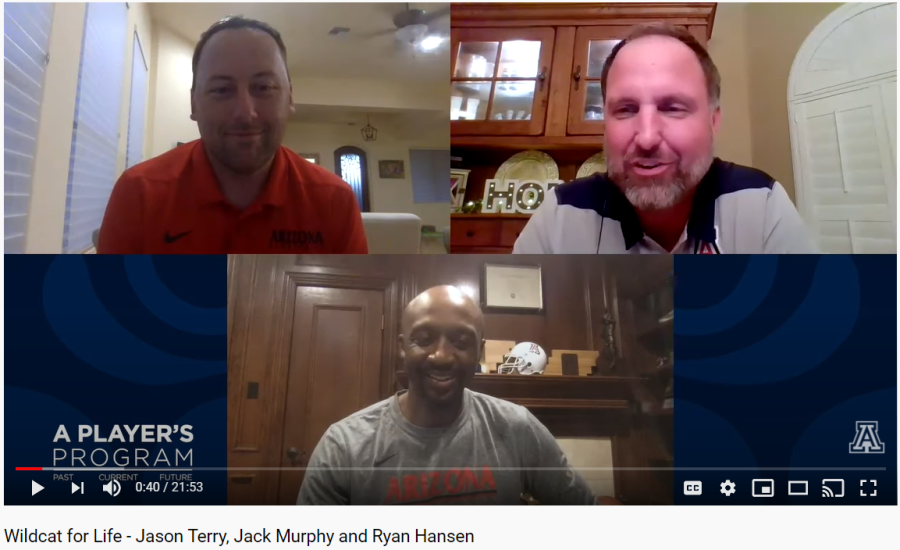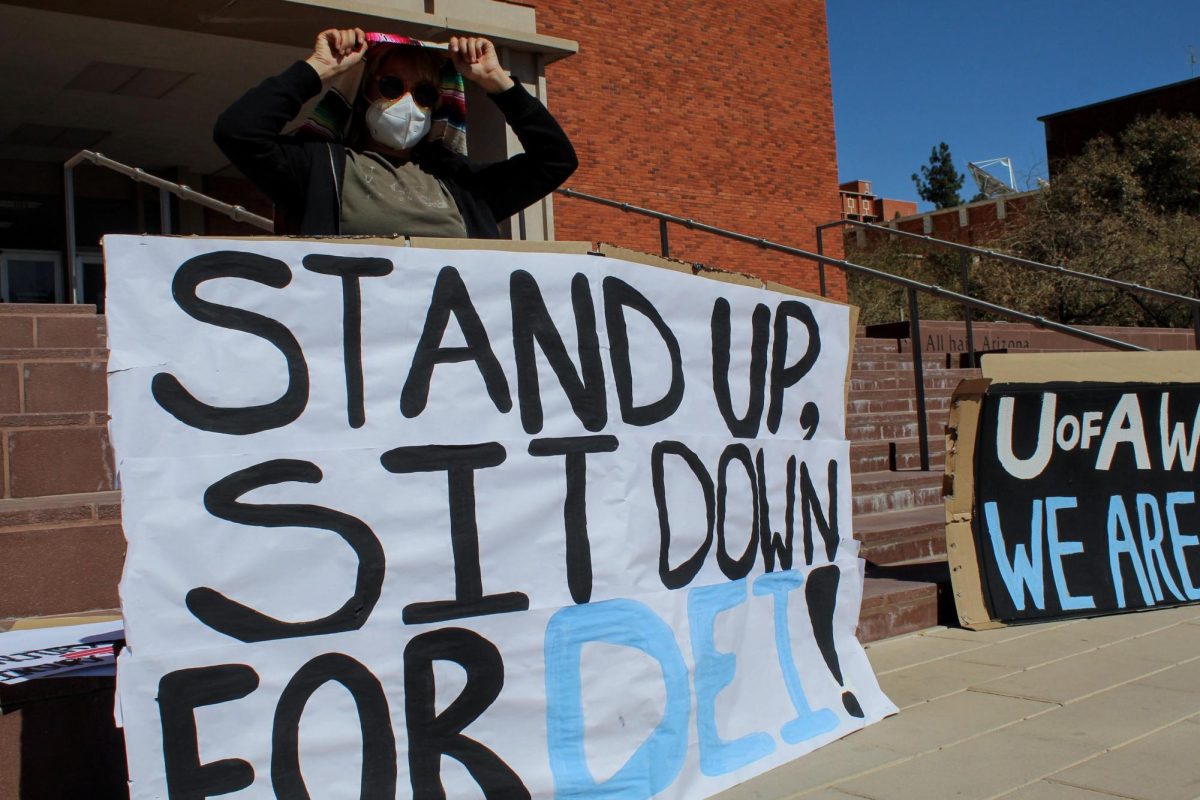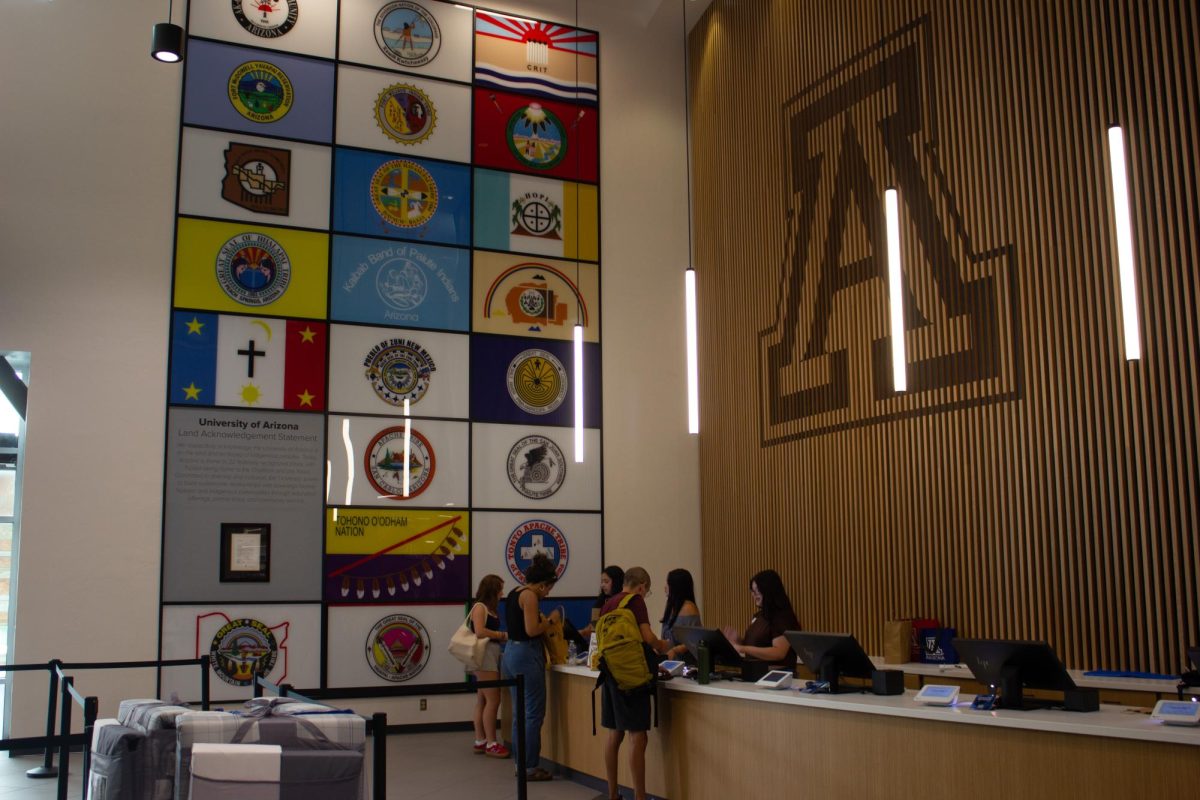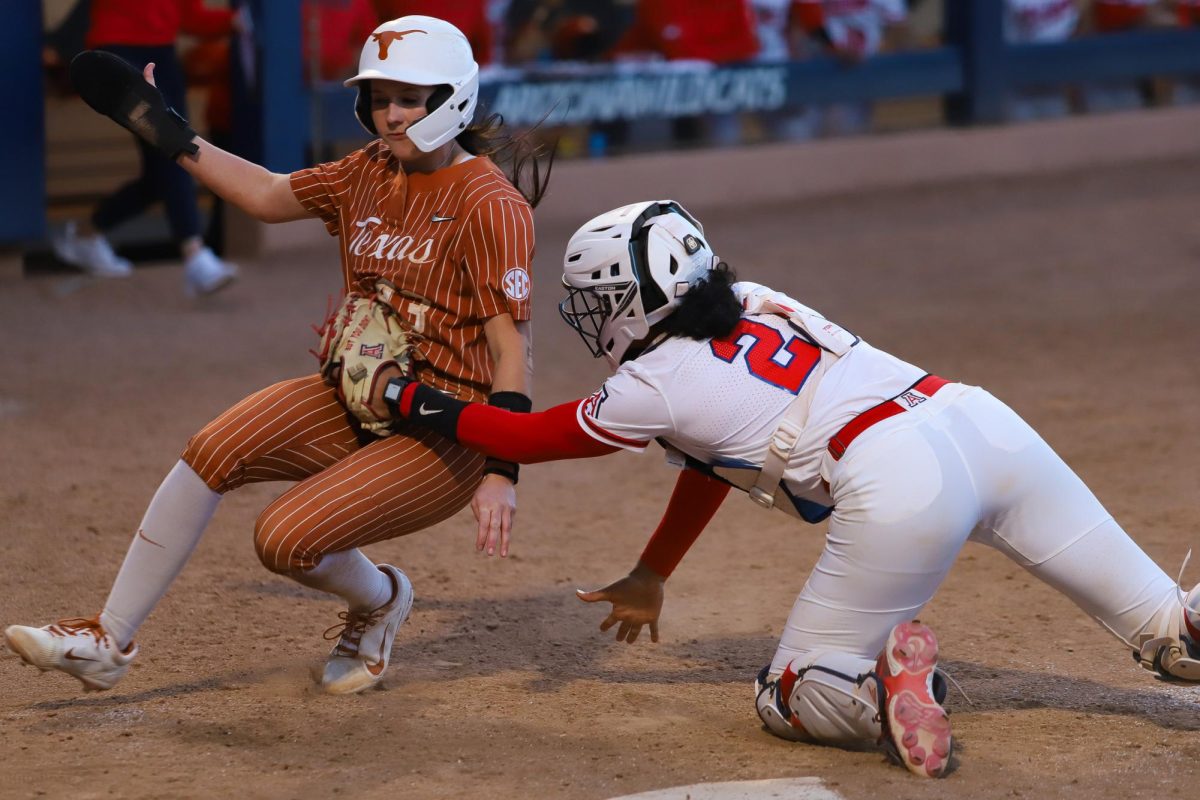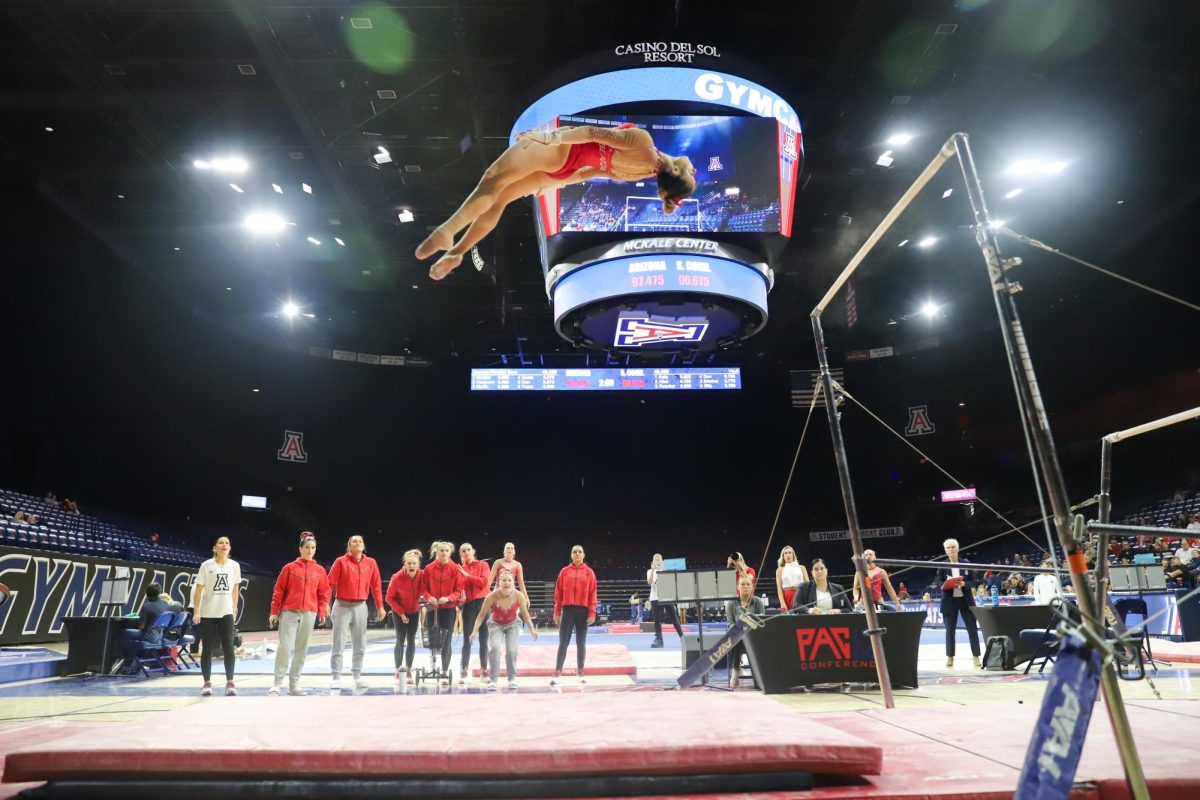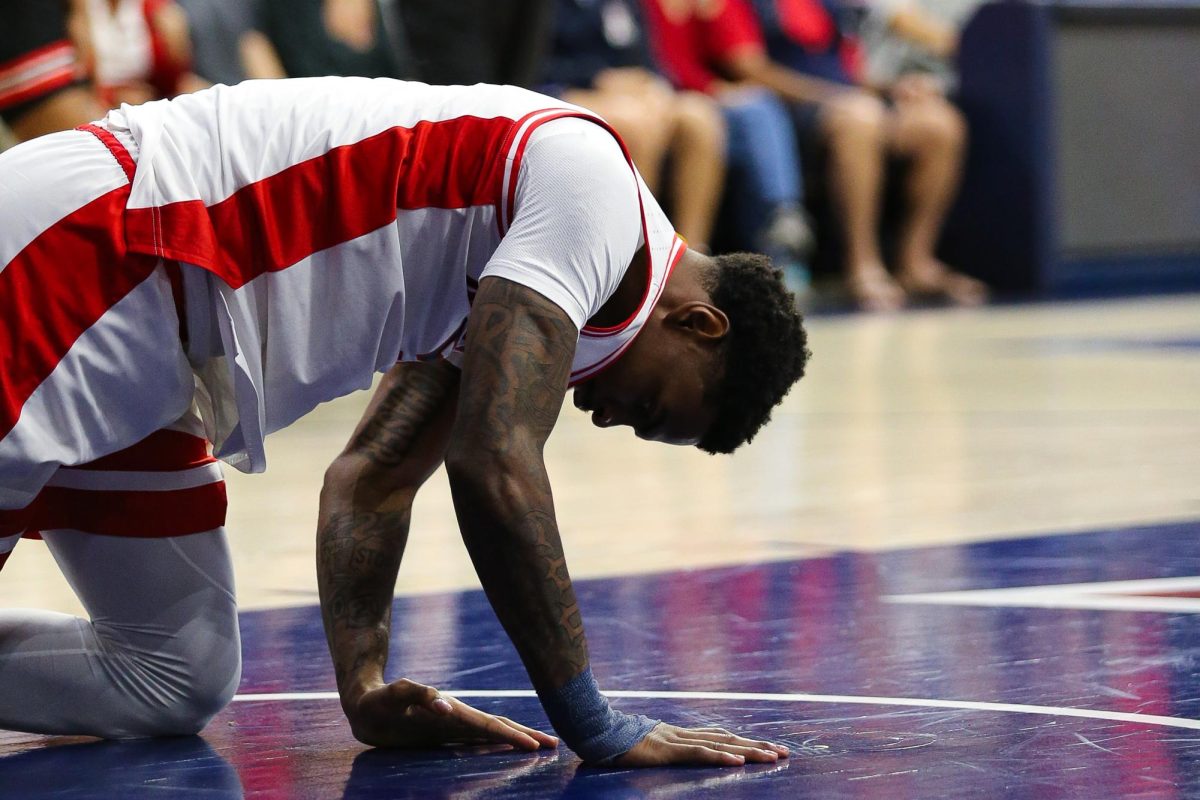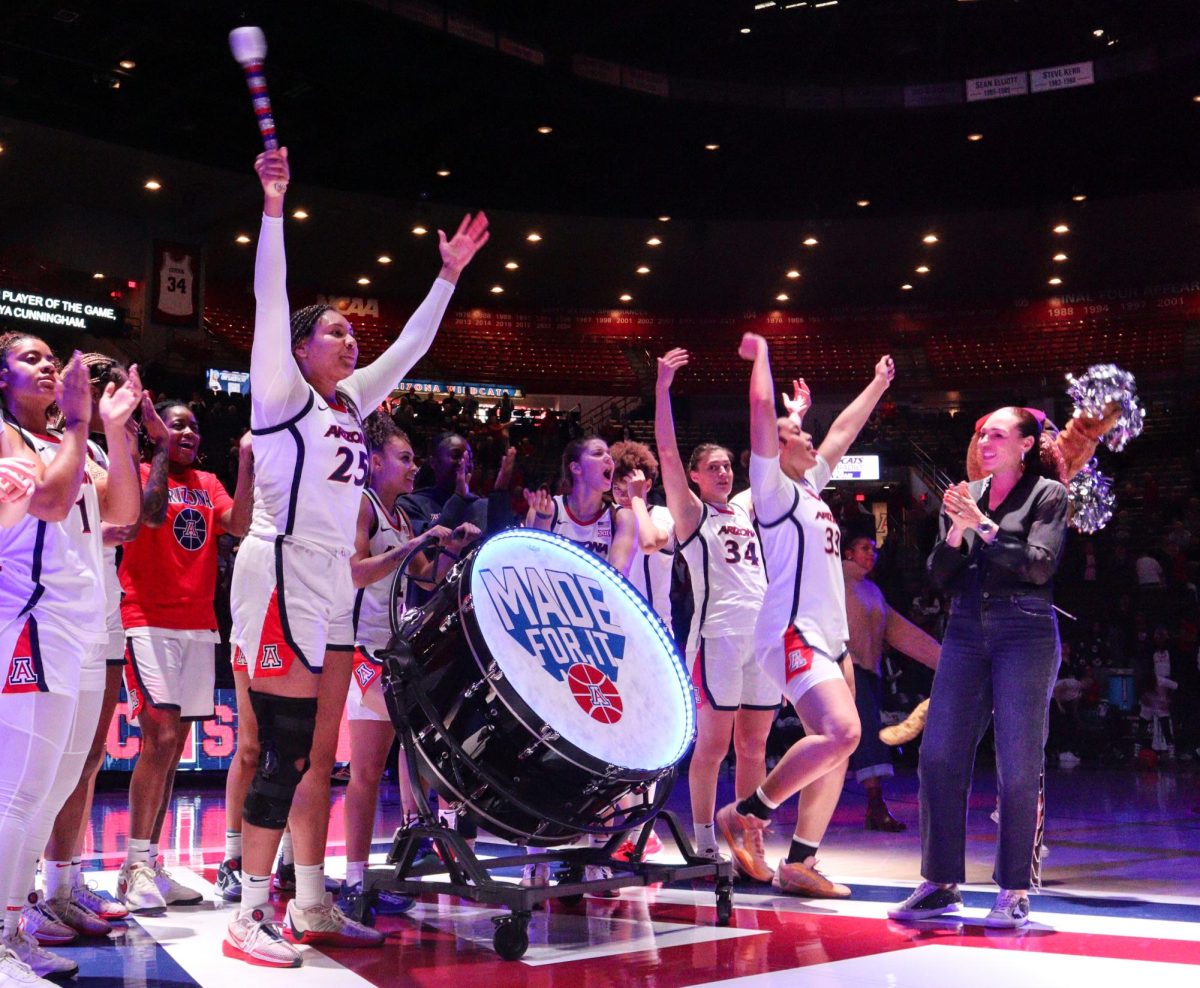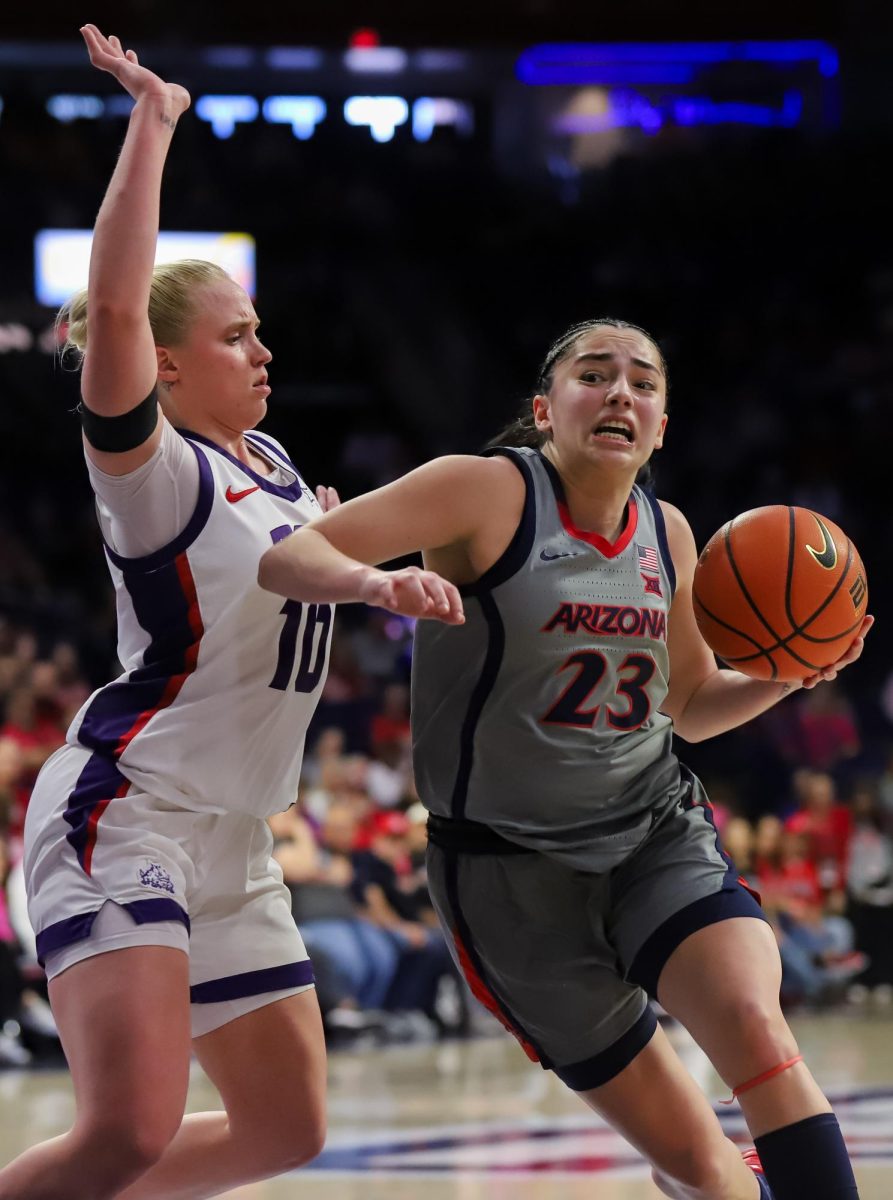The recent hiring of Jason Terry, an 19 year NBA veteran, former NCAA National Player of the Year and team leader on the 1997 Arizona Men’s Basketball national championship squad as an assistant coach to the men’s basketball team means good news for an athletics program in mid-crisis.
However, the decision to make a major athletics hire during a campus wide hiring freeze and during major furloughs of university faculty and staff has raised major questions about university management during the COVID-19 pandemic.
RELATED: How Arizona legend Jason Terry became the Wildcats’ next assistant coach
“We don’t question his qualifications,” said Celeste Gonzáles de Bustamante, a steering committee member of the Coalition for Academic Justice at the University of Arizona, in an email.
“Terry is a beloved graduate of the UA,” Gonzáles de Bustamante said in an email. “He helped the Wildcats win the NCAA championship in 1997. What we question is the timing of his hiring.”
Gonzáles de Bustamante and CAJUA, among other university staff, are increasingly concerned with the university’s decisions during the execution of campus-wide furloughs. According to CAJUA, salary cuts at the UA are among the highest in the nation at 20%, and fail to be adjusted properly to faculty salary, meaning higher paid executives face less proportional cuts than lesser paid employees.
“It is clear that the UA administration is putting profits before people in the current administrative furlough/pay-cut plan,” Gonzáles de Bustamante said in an email. “The people who are impacted most are those who are the most vulnerable, staff and faculty who do not have tenure, and those who make less than $70K a year.”
While many in athletics will face pay cuts, to Gonzáles de Bustamante, many top coaches are not included in the current campus-wide furlough plan.
Arizona Athletics’ Assistant Communications Director Nathan Wiechers confirmed that while no assistant coaches have been docked pay yet, it is still uncertain how assistant coaches will be impacted by the university’s upcoming furloughs.
Meanwhile, Athletic Director David Heeke, men’s basketball head coach Sean Miller, football head coach Kevin Sumlin, women’s basketball head coach Adia Barnes and baseball coach Jay Johnson have all accepted 20% cuts to yearly salaries in concordance with the furlough plan.
To Miller, Terry’s hire was a carefully planned and much needed decision to fill a two-month long assistant coaching vacancy, after former assistant coach Justin Gainey left to Marquette University.
“It’s a position of need because you lost a very important part of your infrastructure … we went not quite two months without having an assistant coach on our staff,” Miller said in a virtual press conference on June 2. “We were simply replacing a position we need to be successful in.”
In order to keep from falling behind in coaching and recruiting, David Miller, director of basketball analytics, was brought in to serve as Gainey’s interim replacement, primarily focused on fulfilling Gainey’s previous recruitment responsibilities.
“While he served as the ‘interim assistant coach’, he was able to call recruits and do all the same activities that Justin Gainey would have been able to do if he were still in the position,” Wiechers said. “So from that point of view, the staff didn’t miss out on anything.”
Before Terry could begin his position in Gainey’s shoes, a special review of the hiring decision needed to be made by university officials.
“Exceptions to the hiring freeze will be considered through a waiver process,” UA Athletics human resources commented. ”All waiver requests will be reviewed by university senior leadership.”
Upon the moment being approved, the Terry hire was directly confirmed by this waiver process as an exception by university administration leaders to the campus wide hiring freeze.
According to Gonzáles de Bustamante and CAJUA, now is the time for the university to prioritize the financial needs of its staff and students, and to reassess furlough plans and administration decisions, instead of financially focusing on athletics.
“It’s [Athletics] is an area of university activities that could certainly stand to be more transparent,” Gonzáles de Bustamante said in an email. “At a time when the UA administration has imposed a hiring freeze, and it is asking all employees to take severe pay-cuts, we wonder whether it might be better to use [Terry’s] those funds to support faculty and staff who will have more of a direct impact on the student experience at the UA.”
RELATED: Phishing scam claims university distributing Cares Act funds
To Miller and men’s basketball, this situation means losing essential time needed to prepare for a basketball season that may only be five months away.
“At this point it is just crucial to our success. We’re still five months away from college basketball. There is a lot that’s going to happen and we have the responsibility to prepare,” Miller said. “Also in fairness to [Terry], you have to let a new coach come in, and have a chance to move into the community, to get to know your returning players, and at least get one foot on the ground over the summer, so when the school year begins there is familiarity.”
The impacts of coronavirus have undoubtedly caused failures in communication of university priorities, leading to confused expectations from university staff, faculty and administration.
To Gonzáles de Bustamante, however, one thing is clear: “The furlough plan that the UA administration has put forth says that the UA senior leadership is more concerned with economics than its employees.”
While Gonzáles de Bustamante and CAJUA seek reform for university furlough plans, Miller and company look to prepare for an uncertain basketball season. Both parties are working and representing a university navigating murky waters during a crisis that has hit everyone financially.
“There has been a critical lack of transparency from the upper administration,” Gonzáles de Bustamante said in an email. “And a lack of involvement from faculty, students and staff in important decision-making processes regarding the economic impact of COVID-19.”
Follow Ian Tisdale on Twitter



